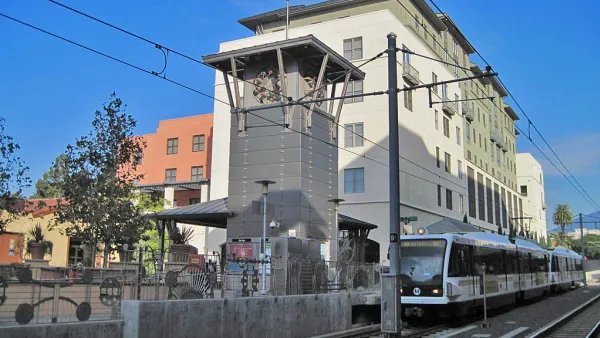In response to Sen. Scott Wiener's SB 827, former Los Angeles County Supervisor and former City Councilmember Zev Yaroslavsky provides his opinions on the unintended consequences of the bill on Southern California's landscape.
California State Senator Scott Wiener, a champion of dense housing and streamlining policies, unveiled Senate Bill 827 in January 2018. Sen. Wiener has since incorporated amendments into the bill—scheduled for a committee hearing in April—but detractors have been critical of the impacts of the legislation throughout the state. Former Los Angeles County Supervisor and former City Councilmember and presently director of the Los Angeles Initiative at UCLA Luskin School of Public Affairs Zev Yaroslavsky sat down with The Planning Report to discuss how Sen. Weiner's bill would radically change Southern California by "eviscerating decades of planning." Yaroslavsky also assesses Sen. Wiener's comments at a recent community hearing in Los Angeles organized by Assemblymember Laura Friedman, which can be seen here.
Yaroslavsky, deeply critical of SB 827, provides context for how this state legislation—touted as promoting transit-oriented development—would in fact undermine the region’s existing affordable housing stock and ability to chart its own future. Talking about both the preservation of existing historic communities and the impacts of lower-income renters, Yaroslavsky noted that "this bill has accomplished one thing: It has united tenants' rights organizations with small businesses and homeowners, all of whom are rising up against this broad-brush approach."
Yaroslavsky did not mince words when assessing the potential impacts of the legislation:
SB 827 is not a housing bill; it’s a real-estate bill. It is intended to monetize real estate. This bill is not about YIMBYs vs. NIMBYs; it’s about WIMBYS: Wall Street in My Backyard. With one stroke of the pen, the State Legislature could totally transform the economics of real-estate development in Los Angeles—while totally eviscerating decades of planning.
Yaroslavsky described a pathway forward for nuanced growth along existing transit corridors that are supporting quick transit solutions that are well-located. He noted that "Hollywood, the Wilshire corridor, the Vermont corridor, Van Nuys, NoHo, and many areas along the Expo, Gold, and Crenshaw light-rail lines—among others—lend themselves to densification. However, we have to be smart about where along these corridors we densify, and where we preserve neighborhood character. There is room for both."
Read more of Yaroslavsky's response to SB 827 in The Planning Report.
FULL STORY: Zev Yaroslavsky on Scott Wiener’s SB 827: The Triumph of WIMBYs

Analysis: Cybertruck Fatality Rate Far Exceeds That of Ford Pinto
The Tesla Cybertruck was recalled seven times last year.

National Parks Layoffs Will Cause Communities to Lose Billions
Thousands of essential park workers were laid off this week, just before the busy spring break season.

Retro-silient?: America’s First “Eco-burb,” The Woodlands Turns 50
A master-planned community north of Houston offers lessons on green infrastructure and resilient design, but falls short of its founder’s lofty affordability and walkability goals.

Test News Post 1
This is a summary

Analysis: Cybertruck Fatality Rate Far Exceeds That of Ford Pinto
The Tesla Cybertruck was recalled seven times last year.

Test News Headline 46
Test for the image on the front page.
Urban Design for Planners 1: Software Tools
This six-course series explores essential urban design concepts using open source software and equips planners with the tools they need to participate fully in the urban design process.
Planning for Universal Design
Learn the tools for implementing Universal Design in planning regulations.
EMC Planning Group, Inc.
Planetizen
Planetizen
Mpact (formerly Rail~Volution)
Great Falls Development Authority, Inc.
HUDs Office of Policy Development and Research
NYU Wagner Graduate School of Public Service




























